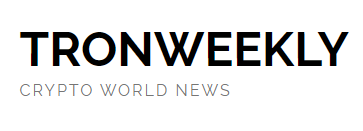January 19, 2025 by Mishal Ali
Key Takeaways:
- Coinbase seeks clarity on SEC’s authority over secondary crypto trades.
- The case addresses whether such trades qualify as “investment contracts.”
- A ruling could redefine the regulatory framework for digital assets.
Coinbase, the largest cryptocurrency trading platform in the United States, has filed an appeal with the Second Circuit Court to clarify whether secondary-market crypto transactions are subject to federal securities laws.
Chief Legal Officer Paul Grewal announced the move via X, underscoring the importance of defining “investment contracts” in the context of digital assets. According to the exchange, this unresolved legal question has hampered the crypto sector’s technological innovation and economic growth for years.
Today we asked the Second Circuit to take on our interlocutory appeal. Decades of appellate precedent confirms that an “investment contract” requires something contractual. The Circuit can provide some urgently needed guidance on this foundational question of law. 1/5
— paulgrewal.eth (@iampaulgrewal) January 17, 2025The legal dispute centers on the exchange’s claim that transactions on its platform involve asset sales rather than securities trades. Grewal highlighted that Coinbase operates a blind bid-ask system where buyers and sellers interact anonymously, with no post-transaction commitments.
Coinbase has argued that these trades fail to meet the criteria outlined in the Howey Test, which requires a common enterprise and profit expectations derived from the efforts of others to qualify as securities.
The appeal also addresses the SEC’s inconsistent regulatory stance. In 2021, the SEC approved Coinbase’s public listing, implicitly recognizing its business model. However, two years later, the agency sued Coinbase, alleging that its platform operates as an unregistered securities exchange.
Legal Uncertainty: How the Coinbase Case Challenges Precedent
At the core of the case lies the definition of “investment contracts.” The Howey Test, established in a 1946 Supreme Court decision, requires specific criteria for a transaction to be classified as a security. Coinbase contends that its transactions do not involve the ongoing obligations necessary to meet this standard.

The district court’s earlier decision expanded the interpretation of the Howey Test, breaking from established precedent. This has led to a legal quagmire, with conflicting rulings in related cases.
For example, in SEC v. Ripple, the court ruled that blind bid-ask trades did not constitute investment contracts. However, in SEC v. Terraform, a different interpretation emerged, suggesting that certain secondary-market transactions could qualify if tied to issuer activity.
The cryptocurrency market, which has surpassed $3 trillion in global value, now faces significant regulatory uncertainty. Clear legal guidance is essential for industry participants and courts, regulators, and consumers navigating this evolving landscape.
Far-Reaching Implications
The outcome of Coinbase’s appeal could set a landmark precedent for the cryptocurrency industry. If the court rules in Coinbase’s favor, it could curtail the SEC’s authority over secondary-market trades, paving the way for innovation and growth. Conversely, a ruling against Coinbase might solidify the SEC’s regulatory jurisdiction, potentially stifling industry expansion.
Related Reading | The Best Bull Run Strategy for December? These 5 Altcoins Hold the Key!

 9 months ago
58
9 months ago
58




 English (US) ·
English (US) ·